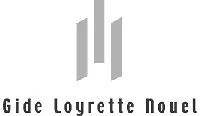The French social security financing law for 2008 has provided for two additional contributions on stock options and restricted stock units (RSUs).
The first contribution is to be borne by the employer. According to the employer's choice, its funding base equals:
- for stock options, either the value of the stock options as it appears in the company's consolidated accounts or 25% of the fair market value of the underlying shares on the date the stock options were granted;
- for RSUs, either the value of the RSUs as it appears in the company's consolidated accounts or the fair market value of the underlying shares on the date the RSUs were granted.
The contribution rate is 10%. It must be paid in the month following the stock option grant.
The second contribution is to be borne by the beneficiary. Its funding base equals the acquisition gain, i.e.:
- for stock options, the difference between the value of the shares on the date the stock options are exercised and the exercise price;
- for RSUs, the fair market value of the shares on the vesting date of the RSUs.
The contribution rate is 2.5%. It must be paid in the month following the sale of the shares, whether they were acquired through stock options or RSUs.
These new rules apply to all grants carried out as from October 16, 2007.
The content of this article is intended to provide a general guide to the subject matter. Specialist advice should be sought about your specific circumstances.
